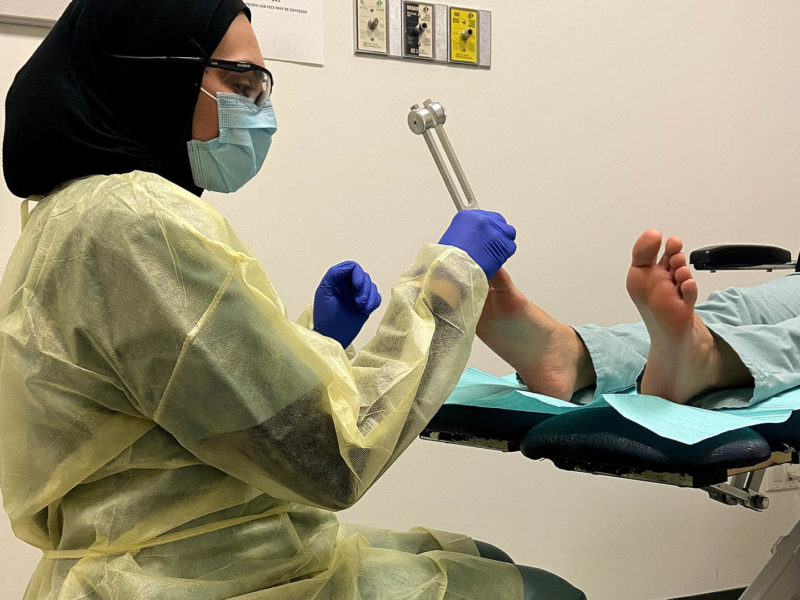Project Insights Report
Retail Entrepreneurship Acceleration Program
 Executive Summary
Executive Summary
Black, racialized and immigrant women entrepreneurs face persistent barriers that impede the growth and sustainability of their businesses. Systemic biases across financial institutions often limit access to capital. Complex and stringent compliance requirements, coupled with fragmented support systems, create additional hurdles to scaling. A lack of access to professional networks and mentors further isolates these entrepreneurs, limiting opportunities to gain market insights and build the relationships needed to navigate the landscape.
The Retail Entrepreneurship Acceleration Program (REAP) + iLaunchHERproduct, led by de Sedulous Women Leaders and funded by the Future Skills Centre, is a single program with two components that was designed to address the systemic barriers faced by Black, racialized and immigrant women entrepreneurs in retail. Delivered over three cycles between 2021 and 2024, the program combined practical training—delivered through 13 master classes led by experts in retail, legal and financial fields—with structured buyer engagement opportunities. This two-phase approach aimed to strengthen participants’ retail readiness by equipping them with the knowledge, tools and industry connections needed to access and succeed in competitive retail markets. Since its inception, the program has attracted over 300 diverse women entrepreneurs, with 285 completing the program, 92.6% identifing as Black, 84.9% as “women of colour” (or racialized) and 77.5% as immigrant women entrepreneurs.
This evaluation examined how the program supported these entrepreneurs in developing key competencies within their entrepreneurial journeys, with a focus on launch, growth and sustainability. Guided by the Inclusive Entrepreneurship Competency Framework (IECF)—an evidence-based model developed by the Diversity Institute to strengthen program design and assessment—and using a mixed-methods approach, the evaluation captured insights through intake (n=308) and post-program surveys (n=92), focus groups (n=26), and semi-structured interviews with employer partners (n=7) and program staff (n=2).
Competency development was evident across three key business stages. In the launch stage, participants reported gains in legal and financial literacy, leadership and planning. In the growth stage, participants scored highest in sales and branding but lower in digital marketing tools, as well as competencies related to raising funds and human resource management. In the sustainability stage, high scores were observed for competencies related to strategic management, innovation and innovative thinking, and corporate social responsibility. Overall satisfaction was high, with an average rating of 4.81 out of 5. Importantly, 60% of participants reported new connections to big-box buyers, and 56% reported having secured access to retail markets as a result of the program. The program appears to have been effective in building industry-specific competencies, with participants reporting relatively high levels of knowledge in areas such as automation, merchandising and product selection, e-commerce, and data management and analytics. In contrast, lower scores for individual-level skills, such as language and cross-cultural competence, suggest that additional support may be needed in these areas, particularly given the high representation of immigrant entrepreneurs.
Key recommendations include strengthening post-program follow-up with buyers, expanding engagement with smaller and niche retailers, implementing pre-program assessments to tailor content by business stage and sector, and increasing regional and language inclusivity. Future iterations would also benefit from enhanced training in digital tools, funding strategies and team development to ensure participants are equipped to sustain and grow their businesses beyond initial retail access. Importantly, the findings have clear implications for ecosystem actors that invest in entrepreneurship training, underscoring the need for more comprehensive and tailored approaches to entrepreneurship support that address the distinct needs that arise from an entrepreneur’s stage of business, sector and identity.
Key Insights
Across three program cycles, the REAP+iLaunchHERproduct program attracted 308 Black, racialized and immigrant entrepreneurs. Of those, 285 completed the program, resulting in a 92.5% completion rate.
Employer partners emphasized the value of conducting pre-program assessments and improving coordination among instructors to more effectively identify participant needs and tailor training content.
A majority of participants reported meaningful progress in expanding their retail presence, with 56% reporting that they secured access to big-box stores as a result of their participation.
 The Issue
The Issue
Women are majority owners of nearly 20% of private sector businesses in Canada, generating about $90.6 billion in revenues and supporting close to one million jobs. Many women pursue entrepreneurship through self-employment. Women account for nearly 40% of all self-employed individuals in Canada, often using self-employment as a stepping-stone toward majority ownership. Despite their contributions, women entrepreneurs continue to face barriers that limit the growth and sustainability of their businesses.
These challenges are even more pronounced for Black, racialized and immigrant women, who encounter compounded obstacles in accessing capital, scaling their ventures and securing shelf space in retail markets. Systemic biases across financial institutions often restrict diverse women’s access to capital, leaving many of these entrepreneurs to rely on personal savings due to difficulties in securing loans, grants or investments. Their efforts to scale are further hindered by complex compliance requirements and fragmented support systems. Limited access to professional networks restricts their ability to connect with buyers and navigate the retail landscape. Black entrepreneurs, in particular, face barriers in building networks and finding mentors or sponsors who can offer guidance on financing, customer acquisition and business development while also understanding their unique experiences, particularly in regards to racial stereotypes and discrimination. Similarly, immigrant women often lack pre-established support networks in their destination countries, which are essential for accessing information, resources and opportunities. The absence of such networks can make it especially difficult to secure financing, meet regulatory demands and enter retail spaces.
In 2021, de Sedulous Women Leaders launched the REAP+iLaunchHERproduct program to support the retail readiness of Black, racialized and immigrant women entrepreneurs. Since its inception, the program has been delivered across three cycles comprising seven cohorts. It is structured in two phases. Phase 1, REAP, focuses on building foundational knowledge through 13 master classes covering topics such as product positioning, pricing strategies, intellectual property protection, branding, logistics and distribution. Phase 2, iLaunchHERproduct, helps participants transition from learning to execution by preparing them to pitch their products at the Buyer + Vendor Connect event, which features representatives from major retail chains.

 What We Investigated
What We Investigated
This report assessed the effectiveness and impact of the REAP+iLaunchHERproduct program in addressing the barriers that Black, racialized and immigrant women entrepreneurs face in scaling their businesses and accessing retail markets in Canada.
The evaluation was guided by the IECF. The IECF addresses a critical gap in entrepreneurship training and evaluation by offering a structured approach to defining and measuring the full range of competencies (the knowledge, skills, abilities, attitudes and traits) needed for entrepreneurial success. Many entrepreneurship training programs lack clearly articulated goals or context-specific content and therefore fail to reflect the realities and distinct challenges entrepreneurs face based on where they are in their business journey, the sector in which they operate, and their experiences as members of equity-deserving groups. In response, the IECF draws on extensive entrepreneurship research and experience with program evaluations to map relevant competencies across five stages of the entrepreneurial journey (ideation, validation, launch, growth and sustainability). It also incorporates sector-specific competencies and those tailored to the unique needs of diverse entrepreneurs.
Program evaluators used a mixed-methods approach that combined intake (n=308) and post-program surveys (n=92), three focus groups (n=26), and semi-structured interviews with seven employer partners and two de Sedulous Women Leaders staff members. These methods were chosen to provide both quantitative evidence of competency development and qualitative insights into participant experiences, implementation challenges and the program’s broader impact.
The key learning questions were as follows:
Program Delivery
- To what extent has the program effectively recruited and engaged Black, racialized and immigrant women entrepreneurs?
- To what extent has the program supported entrepreneurs with the implementation of the provided online training?
- What challenges or barriers do Black, racialized and immigrant entrepreneurs face in fully engaging with and applying the content from the online training?
Program Outcomes
- How did the program impact the competencies needed for entrepreneurial success?
- To what extent were participants satisfied with the program, and how effectively did it contribute to tangible outcomes in retail readiness and business expansion?
 What We’re Learning
What We’re Learning
Across three program cycles, the REAP+iLaunchHERproduct program attracted 308 diverse women entrepreneurs. Of those, 285 completed the program, resulting in a 92.5% completion rate. The demographic breakdown of participants closely mirrored registration data, indicating no significant barriers to completion. Of those who completed the program, 92.6% identified as Black women, 84.9% as “women of colour,” and 77.5% as immigrant women.
The majority of businesses had been operating for one to four years (58.9%). Most participants (61.8%) reported annual revenues under $25,000. Product offerings were concentrated in beauty and skin care (27.7%), food and beverages (27.4%), and clothing, fashion and accessories (16.1%), with 68.5% manufacturing their products in Canada. Only 26.7% had their products stocked in retail stores across Canada, while 13.7% sold to companies, resellers or wholesalers whose products were used or sold outside the country.
Participants rated the content highly and participants reported increased confidence and clarity in navigating their entrepreneurial journeys. The Buyer + Vendor Connect event was especially valued for offering direct access to major retailers and actionable feedback. Participants gave high ratings to program staff as well. Finally, many participants, particularly immigrant entrepreneurs, reported having gained a deeper understanding of the Canadian business environment.
The qualitative data also revealed challenges and areas for improvement in terms of logistics and access… Additionally, participants expressed a desire for broader buyer engagement beyond big-box retailers and noted challenges in maintaining connections with buyers post-pitch, underscoring the need for structured follow-up and clearer expectations around timelines.
Launch, Growth, and Sustainability Data
For entrepreneurs in the launch (12% of respondents): Results suggest development in understanding of regulations and taxation (4.36 mean score), intellectual property (4.80), incorporation (4.60), financial basics such as budgeting (4.60) and credit documentation (4.50), and borrowing and repayment loan processes (4.33), though digital financial tools scored lower (3.50). Leadership-related competencies, including coaching (4.80), planning (4.70), coping with challenges (4.60) and promoting organizational mission (4.20) were also rated highly.
The results for those in the growth (72.8%): Higher ratings were seen for competencies related to revenue generation, including scaling sales organization (4.43 mean score), customer success (4.40), brand-building (4.37), sales lead pipeline management (4.32) and lead generation (4.30), though lower scores were observed for digital-related competencies and pursuing public procurement opportunities (3.42). Team-related competencies, such as cultivating team culture (3.72) and managing external partnerships (3.75), received moderate ratings, with lower scores in human resource management. In fundraising, building a funding strategy (3.92) and securing grants (3.74) were also rated moderately. Competency in leveraging digital technologies for efficiency was rated moderately at 3.82.
For the 14.1% of survey respondents in the sustainability phase: High scores were observed for partnership building (4.69 mean score), risk assessment (4.54) and strategic vision (4.54). Results indicate increased competencies for both research and development (4.31) and innovation (4.33). High scores were observed for corporate social responsibility, including applying sustainability practices (4.33) and ethical and sustainable business thinking (4.42). Equity, diversity and inclusion integration (4.08), scored lower, while cybersecurity (3.92) received the lowest score in this area.
Participants reported high satisfaction with the program, rating their overall satisfaction at 4.81 out of 5. The survey results suggest that the program was effective in helping participants secure spots in big-box stores (4.28 mean score), supporting the growth of their businesses (4.21) and increasing their entrepreneurial knowledge (4.77). A majority of participants reported significant progress in retail access (60% reported being able to connect to big-box buyers during or after the program where they reported not being able to do so before), with 56% securing access to big-box stores during or after the program.
The evaluation also provided recommendations to inform future programming, including suggestions for program design and delivery. Suggestions included pre-program assessments to define needs and stages of development, relationships with more diverse retailers, and more post-program support. The participants also defined areas of interest for future programming, e.g., contract negotiations, partnership stewardship and more.
 Why It Matters
Why It Matters
The evaluation of the REAP+iLaunchHERproduct program offers important implications for policy and practice, particularly in how entrepreneurship programs are designed, delivered and evaluated, to support equity-deserving groups at different stages of development in specific sectors. Many existing programs take a one-size-fits-all approach, failing to account for the varying needs of entrepreneurs according to their business stages, sectors and identities. While some programs may be designed to target one of these dimensions, rarely do they address all three dimensions simultaneously, resulting in training that may be well-intentioned but ultimately misaligned with participants’ realities.
For organizations delivering entrepreneurship support, the findings point to the value of integrating competency-based training that responds to context-specific needs. Matching content to a participant’s stage of development with clear and measurable outcomes rather than offering generalized instruction can make training more relevant and actionable. The use of a structured framework like the IECF makes it easier to align programming with demonstrable results.

State of Skills:
Working with Black Communities
Black peoples in Canada experience widespread systemic anti-Black racism in education systems and the labour market. More needs to be done to name and address anti-Black racism in the skills ecosystem, including efforts to change employer behaviour to make workplaces more inclusive.
For Black, racialized and immigrant women entrepreneurs seeking to scale their businesses and access retail spaces, the program also underscored the value of involving industry experts, structuring networking opportunities around actionable outcomes and demystifying the Canadian retail landscape. Participants repeatedly highlighted how hearing directly from buyers and experts, including legal and finance professionals, gave them practical, insider knowledge that they would not have otherwise developed. For many participants, the program was their first opportunity to engage directly with buyers and receive tailored feedback. These structured, guided interactions helped participants understand buyer expectations, refine their offerings and build the confidence and knowledge required to pursue retail partnerships.
 What’s Next
What’s Next
Findings from this study will help inform the Integrated Entrepreneurship Competency Framework for entrepreneurs at different stages of development, across sectors and with diverse lived experience. The framework is under development for the Future Skills Centre.
Have questions about our work? Do you need access to a report in English or French? Please contact communications@fsc-ccf.ca.
More from FSC
Best Practice Models for Industry Engagement
College Transformation
Upskilling/Reskilling Canada's Healthcare Workers
How to Cite This Report
Diversity Institute. (2025) Retail Entrepreneurship Acceleration Program. Toronto: Future Skills Centre. https://fsc-ccf.ca/projects/retail-acceleration/
Retail Entrepreneurship Acceleration Program is funded by the Government of Canada’s Future Skills Program. The opinions and interpretations in this publication are those of the author and do not necessarily reflect those of the Government of Canada.




